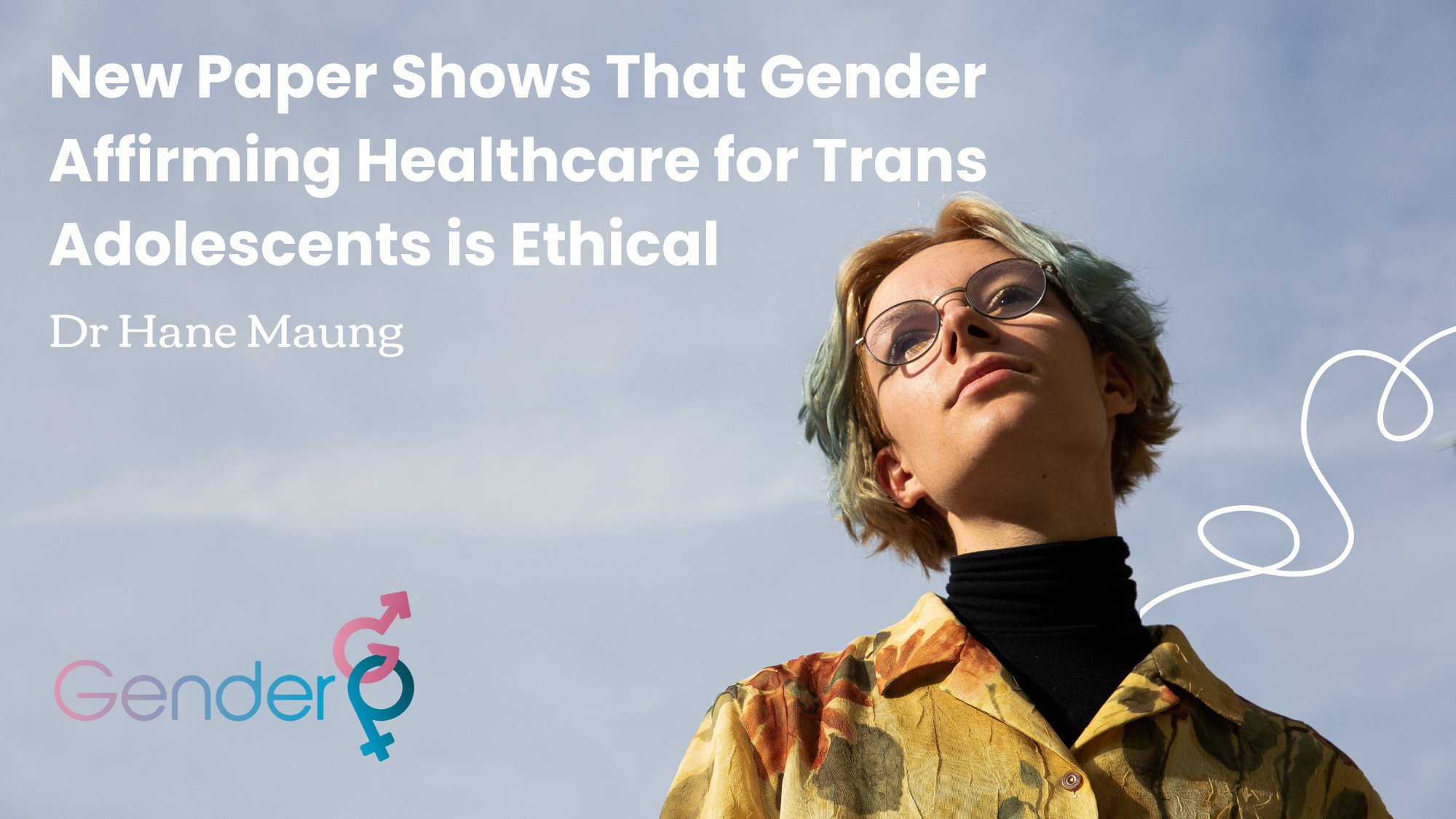
With the recent series of policies and laws concerning trans healthcare in several countries, including the United Kingdom and the United States, access to gender-affirming hormone treatment for trans adolescents has been severely restricted. A recent paper published in the Journal of Bioethical Inquiry shows that these restrictions are deeply unethical, and that the provision of gender-affirming hormone treatment for consenting trans adolescents is ethically necessary.
The paper applies a framework for medical ethics developed by the philosophers Tom Beauchamp and James Childress in their book The Principles of Biomedical Ethics. Under this framework, ethical decisions in healthcare are guided by four principles:
- Beneficence — the duty to bring benefit to the person;
- Nonmaleficence — the duty to avoid harm to the person;
- Autonomy — the duty to respect the person’s right to self-determination;
- Justice — the duty to act fairly and justly toward the person.
With respect to every one of these principles, the provision of gender-affirming hormone treatment for consenting trans adolescents is ethical.
Beneficence
Regarding beneficence, there is a substantial amount of clinical research showing that gender-affirming hormone treatment leads to improvements in mental health and social wellbeing in trans adolescents. Furthermore, given that the lack of access to gender-affirming healthcare is known to be a significant contributor to mental ill health, social withdrawal, and suicidality in the trans population, the benefits of gender-affirming hormone treatment in trans adolescents are potentially lifesaving.
Nonmaleficence
Regarding nonmaleficence, gender-affirming hormone treatment has been shown to be safe, especially compared to many other elective medical interventions. Of course, as with any other medical treatment, there are risks that have to be acknowledged, but the potential harms from these risks are substantially outweighed by the benefits of treatment and the harms of withholding treatment.
Autonomy
Regarding autonomy, the provision of gender-affirming hormone treatment for trans adolescents respects their rights to determine their own identities and attain their embodiment goals. Contrary to the doubts raised about whether young people are mature enough to make these decisions, research has shown that trans adolescents who request gender-affirming hormone treatment very often demonstrate the understandings and capacities required for informed consent.
Justice
Regarding justice, the barriers faced by trans people when trying to access gender-affirming healthcare reflect an unfair double standard which contributes to significant health disparities between trans adolescents and their cis peers. Improving the provision of gender-affirming hormone treatment would be an important part of addressing this injustice.
What Does it Mean?
This paper is significant, because it shows that the recent opposition to gender-affirming healthcare is unjustified. Moreover, it indicates that the restrictions which have been placed on gender-affirming hormone treatment are unethical because they result in significant harms to the mental health and social well-being of trans adolescents, fail to respect the rights of trans people to determine their own identities, and are likely to worsen unjust health disparities between trans adolescents and their cis peers.
Given that there are no sound clinical or ethical grounds for restricting gender-affirming hormone treatment, it appears that these restrictions are grounded in anti-trans bias, whereby healthcare is only deemed unproblematic if it conforms to cisheteronormative expectations. This is not so much a claim about the personal motives of the individuals enacting these policies and laws, but rather a claim about the structures and mechanisms at work in a social context that privileges cis identities over trans identities. It is no coincidence that the recent restrictions to gender-affirming healthcare are occurring amidst a wider trend of attacks on trans people by politicians, the mainstream media, and trans-exclusionary lobby groups.
Under the ethical framework described above, healthcare providers have ethical duties to act in ways that bring benefits to patients, avoid harms to patients, respect patients’ rights to make autonomous decisions, and ensure that patients are treated justly. With regards to gender-affirming healthcare, this is achieved by ensuring that gender-affirming hormone treatment is made available to consenting trans adolescents who wish to receive it as part of their care. This also means that healthcare providers ought to do more to challenge the restrictions that have been placed on gender-affirming healthcare and to counter the anti-trans climate wherein these restrictions are being enacted.
Link to paper
Maung, H. H. (2024). “Gender Affirming Hormone Treatment: A Four Principles Analysis”. Journal of Bioethical Inquiry. https://link.springer.com/article/10.1007/s11673-023-10313-z
About the author
Dr Hane Maung (he/him) is an Applied Philosopher and Clinical Ethicist at GenderGP and an Honorary Researcher in Philosophy at Lancaster University. He has a PhD in philosophy from Lancaster University and an MB BChir in medicine from the University of Cambridge.



